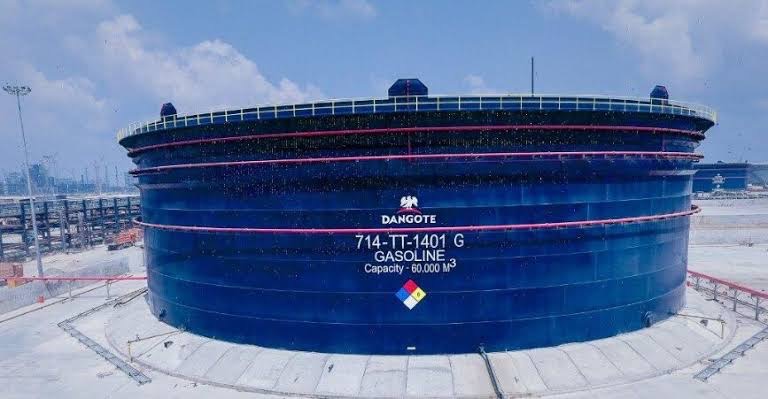KEY POINTS
- Dangote refinery shuts 204,000 bpd petrol unit after catalyst leaks, with repairs to last two weeks.
- Outage tightens petrol supplies in Atlantic Basin, boosting US refiners’ margins and gasoline crack spreads.
- Shutdown comes as OPEC+ raises output and Brent crude trades near $68 a barrel.
Nigeria’s $20 billion Dangote refinery, the largest in Africa, has temporarily shut down one of its key petrol-producing units following a catalyst leak, in a setback for a project seen as central to reshaping global fuel flows.
The 204,000-barrel-per-day Residue Fluidised Catalytic Cracking Unit (RFCCU) went offline around August 29 and will remain shut for at least two weeks as engineers carry out repairs, according to industry monitor IIR Energy and two people familiar with the situation who asked not to be named discussing sensitive operations.
The outage underscores the teething problems that have dogged the 650,000-barrel-per-day refinery since it began ramping up last year.
Despite its promise to end Nigeria’s reliance on imported fuels and emerge as a swing player in the Atlantic Basin, the refinery has faced periodic technical hitches that have slowed operations. Dangote Group did not immediately comment on the shutdown.
Outage Ripples Through Global Fuel Markets
The refinery’s temporary loss of output is already reverberating through international markets. Traders said the outage has tightened petrol supplies in the Atlantic Basin and helped buoy US refiners’ margins, even after the end of the summer driving season. Data from Kpler, a shipping analytics firm, shows that Dangote’s first cargoes of petrol are scheduled to reach New York later this month.
Billionaires Africa reports that this isn’t the first time the RFCCU has run into difficulties. In May, it was reported that the unit was expected to operate at reduced capacity through October after earlier mechanical setbacks. Industry analysts say such disruptions are not unusual for mega-refineries in their early years but warn that prolonged stoppages could test both market confidence and Nigeria’s domestic fuel supply.
The crack spread, or the difference between crude oil and refined gasoline, increased by almost 3% on Wednesday after rising by 8% the day before, while US gasoline futures also increased this week.
The outage occurs as the larger crude market’s dynamics change. According to a Bloomberg survey, OPEC and its allies increased production by 400,000 barrels per day to 28.55 million barrels in August in an effort to regain market share. Although it still fell short of its OPEC+ quota, Saudi Arabia alone increased output by 230,000 barrels to 9.6 million barrels.
The global benchmark, Brent crude, has dropped 9% so far this year to roughly $68 a barrel, which has helped consumers but forced producers from Riyadh to work for US shale companies. Whether additional supply increases are forced into the market earlier than anticipated could be decided at Sunday’s OPEC+ meeting.
Fixing its catalytic cracking unit, a crucial component that turns heavy crude into gasoline, is still Dangote’s top priority. Although the setback is only temporary, analysts say governments, traders, and investors who have placed significant bets on the refinery’s potential to become a new anchor in the world’s fuel supply will be closely monitoring its capacity to handle such operational challenges.



